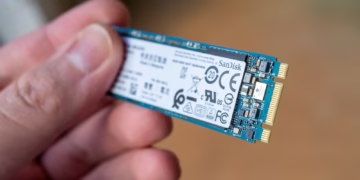Understanding Embedded Systems
Embedded systems are crucial in digital advancements, performing specific functions within mechanical or electrical systems. They are integrated into various devices, such as digital thermostats and car anti-lock braking systems. The intricate relationship between software and hardware is critical, with the printed circuit board (PCB) being a vital component. The manufacturing process of PCBs is crucial for optimizing these embedded solutions, with companies dedicated to this craft ensuring high quality and performance standards. Initially limited by primitive technology and complex computations, embedded systems have become the foundation of modern electronic gadgets and machinery, driving an unprecedented boom in intelligent technologies.
With embedded systems, sectors such as PCB manufacturing have been transformed, evolving from simple circuitry to intricate networks supporting vast and varied functionalities. They embody the synergy between practical engineering and visionary foresight, melding reliability with adaptability. And as industries continue to thrive on the cusp of technological revolutions, embedded systems stand as a testament to human ingenuity, persistently pushing the boundaries of what’s programmable, manageable, and ultimately possible.
The Heart of Innovation: Microcontrollers in Embedded Systems
Microcontrollers are small, powerful chips that process digital data from sensors or user interactions to create actionable device instructions. As technology advances, it becomes more dynamic and intuitive, merging the concept of smart with tangible reality. This miniaturization has led to innovations like wearables monitoring health and home assistants managing living spaces. Microcontrollers have evolved with consumer expectations for enhanced features and resilience, leading to applications like intelligent grids and drones. The semiconductor industry has created functional microcontrollers while minimizing power consumption and costs, transforming how intelligent appliances are used. Microcontrollers are the foundation of the future of embedded system technology.
The Role of PCBs in Reliability of Consumer Electronics
PCBs are the foundation of electronic devices, ensuring reliability and functionality. They are designed to hold intricate networks of electronic components, defining the capabilities and longevity of modern electronics. The manufacturing process, which includes design, etching, layering, and testing, requires precision to prevent system failures. The industry has been a focus for innovation, striving to create boards that can withstand daily use while enabling sophisticated features. Over time, improvements in its design, such as high-density interconnect (HDI) technology and flexible PCBs, have enhanced performance and versatility. The quality of PCBs directly impacts product reliability, user experience, and brand reputation. Polychlorinated biphenyls represent the critical link between innovative capability and unwavering reliability, and investing resources in manufacturing signifies a commitment to quality. Read more exciting articles on Tech new master


















